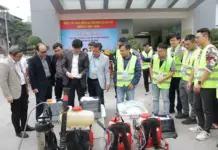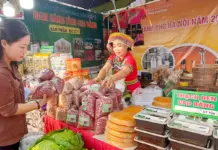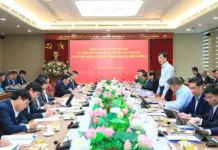The workshop was organized by the Vietnam–Republic of Korea Institute of Science and Technology (VKIST) in collaboration with the Asia and Pacific Center for Information and Communications Technology Training and Development (APCICT), the National Council for Scientific and Technological Research of RoK (NST), National Institute of Green Technology of RoK (NIGT), and Institute of Civil Engineering and Construction Technology of RoK (KICT).
The workshop was themed “Technology to reduce and respond to climate change and technology to develop green, secure smart cities”.
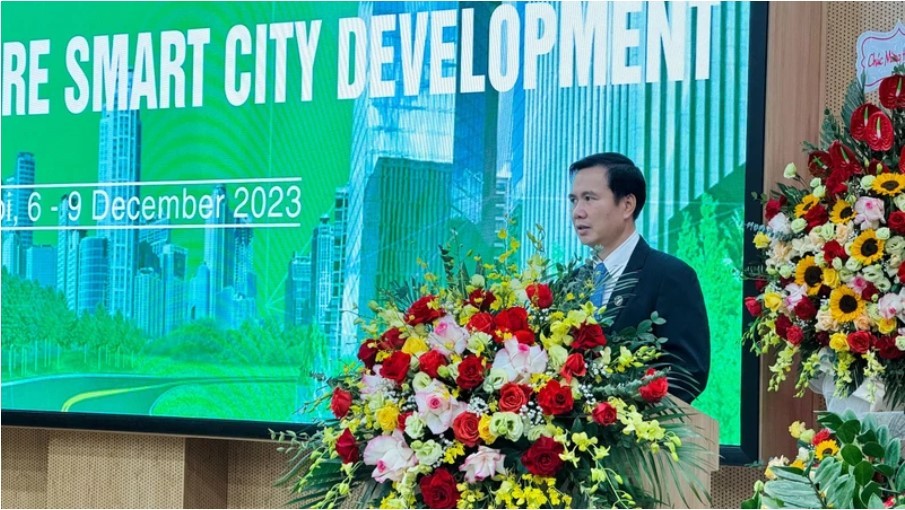 |
| Deputy Minister of Science and Technology Bui The Duy spoke at the workshop. (Photo: NDO) |
Delivering the opening remarks, Dr. Sang-hyup Lee, President of the RoK National Institute of Green Technology (NIGT), said that climate change is happening faster and more seriously, becoming one of the most urgent global problems.
Countries around the world attach importance to international integration and cooperation in responding to and adapting to climate change. Faced with current climate change challenges, countries need to take stronger action, build greener cities, respond more effectively to global warming, and have clear directions and appropriate green development strategies.
Therefore, this workshop will contribute to promoting green technology, cooperation, and learning from regional partners.
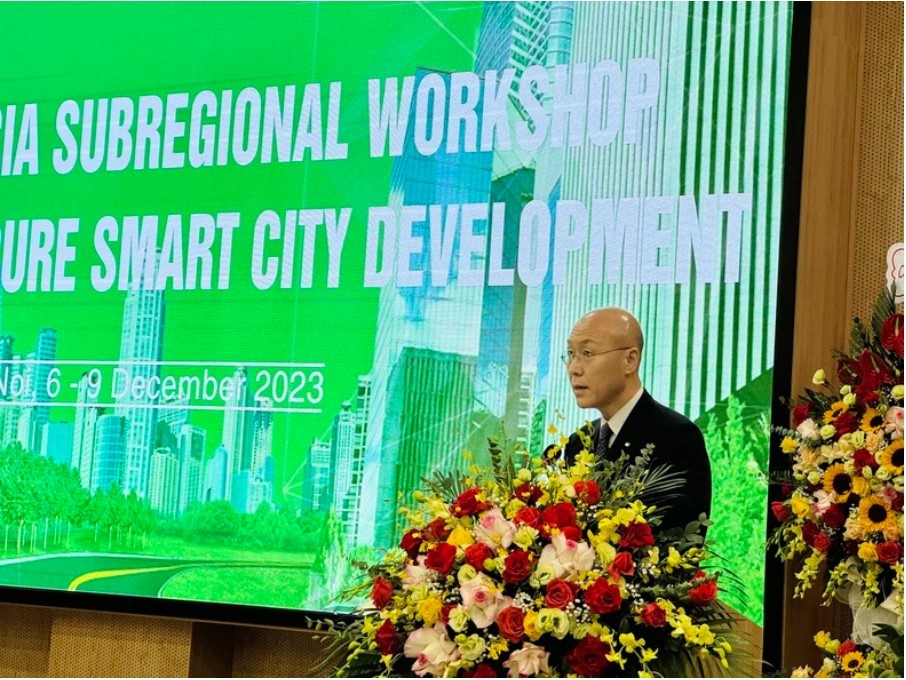 |
| Dr. Sang-hyup Lee, President of the National Institute of Green Technology (Korea), spoke at the event. (Photo: NDO) |
Vietnamese Deputy Minister of Science and Technology Bui The Duy said that the workshop was organized at a very meaningful time when COP28 had just taken place, and Vietnam participated in the global cooling commitment. Vietnam also announced a plan to mobilize resources to implement a fair energy transition.
At COP26, the Vietnamese Prime Minister announced the country’s strong commitment to achieving net-zero emissions by 2050 and was accompanied by a series of strong and drastic actions to implement the commitment. In the implemented action plans, which all revolve around green transformation and digital transformation, Vietnam plays a very proactive role, being an active member of the international community in efforts to solve common problems. Not only is it a global problem, but green transformation is also a vital issue for Vietnam in the future because Vietnam is one of the countries most affected by climate change, especially in the Mekong Delta region.
Therefore, implementing green transformation and energy transformation activities is inevitable in Vietnam and must certainly be based on science, technology, and innovation and require consensus and great efforts of foreign experts, especially from RoK, one of Vietnam’s comprehensive strategic partners.
Deputy Minister Bui The Duy emphasized that the Vietnam-RoK Institute of Science and Technology will be a center for scientific and technological cooperation in research, development, and technology transfer between Vietnam and RoK, connecting businesses, research institutes, and universities in Vietnam and RoK.
Recently, the leaders of the Korean Institute of Science and Technology and their colleagues have brought many scientists and experts from RoK research institutes, associations, and businesses to Vietnam. Deputy Minister Bui The Duy hopes that in the coming time, in addition to promoting cooperation, VKIST will become a center for scientific and technological cooperation in research, development, and technology transfer, thereby promoting green transformation and energy transformation.
At the workshop, Deputy Minister Bui The Duy expected to soon witness the establishment of a technology center for green transformation in VKIST, which aimed at finding, developing, and applying green transformation technologies, and promoting policy research and implementation mechanisms on green transformation, energy transformation, and digital transformation in Vietnam.
From there, both sides will promote cooperation and mobilize resources to develop technologies and apply green technologies to Vietnam, contributing to strongly implementing the commitments of the Government and the Prime Minister on this issue to the international community.
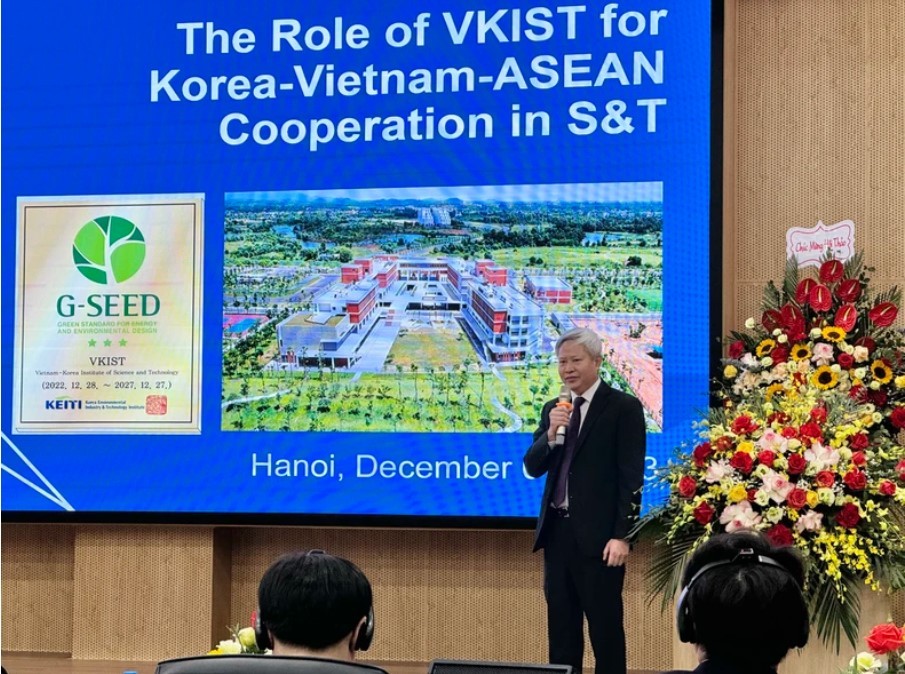 |
| Associate Professor, Dr. Vu Duc Loi, Director of the Vietnam-Korea Institute of Science and Technology discussed at the workshop. (Photo: NDO) |
At the workshop, Associate Professor, Dr. Vu Duc Loi, Director of VKIST, said that with the development orientation of VKIST and the support of the RoK Institute of Science and Technology, the Institute has achieved many technologies serving green transformation.






